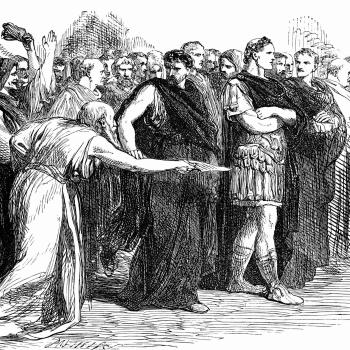Beware the Ides of March!

Event Description
In Julius Caesar, a soothsayer warns Caesar to "Beware the Ides of March." Caesar ignores the warning and is, in fact, murdered on March 15, called "the Ides" on the Roman calendar. Over time, the date has become associated with doom and momentous events-particularly ones with disastrous effects.
Classroom Activity
In addition to teaching your students a famous Shakespearean play, you could use the Ides of March to explore the role of superstitions in our lives and culture.
- Begin by asking students to list the superstitions they know: the number 13, spilling salt, breaking a mirror, finding a penny, etc.
- Next, have them try to categorize these superstitions. For example, which ones relate to good luck, bad luck, death, happiness, etc.?
- After they have categorized them, ask students to define a superstition. What is their purpose or role? What do they tend to relate to?
- Finally, have students think about superstitions and proverbs. Share a list of proverbs from around the world. Which ones on the list also sound like superstitions? What are the similarities and differences between proverbs and superstitions? You can use the ReadWriteThink Venn Diagram interactive for this activity.
Websites
Turner Classic Movies creates sites for educators on several of their most popular films. This one on Julius Caesar includes activities and resources for the play and the 1953 version of the film.
This National Geographic article describes the events leading up to the assassination of Caesar, including a discussion of Plutarch's, Shakespeare's, and Dante's treatments of the leader.
This is a site where people have sent in visual depictions of a superstition or urban legend. Be sure to preview the images to ensure they are appropriate for your students. Students might try a similar activity using photography or other media.
The Committee for the Scientific Investigation of Claims of the Paranormal offers information about common superstitions. They also offer ideas for a Superstition Obstacle Course.